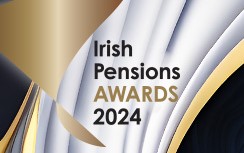A coalition of global investors managing assets worth more than $4trn has called on policymakers in the UK, US and EU to prevent rolling back equal voting rights for investors, citing evidence that robust investor protections are “vital for healthy capital markets”.
The Investor Coalition for Equal Votes (ICEV), whose members are global investors managing assets for millions of investors, published a report today outlining voting sanctions imposed by some the world’s largest investors on companies which list with unequal voting rights or dual class share structures (DCSS).
The report, Voting on voting rights: how the world’s largest investors sanction companies with unequal voting rights, is designed to complement ICEV’s work with companies and their advisers ahead of IPO, in which it encourages firms to list with one share, one vote arrangements.
It highlighted different voting policies used by asset managers and asset owners in the context of DCSS.
These include votes against directors at companies with unequal voting rights; votes against what it calls “dual class enabling” directors at every company where those directors sit on the board; votes in favour of relevant shareholder proposals; and votes against capital resolutions at companies with DCSS.
ICEV said it has been engaging with policymakers in the UK, US and EU to encourage greater protection for investors’ voting rights.
ICEV chair, Caroline Escott, said: “As policymakers around the world roll back investor protections, it’s vital that independent shareholders think about how to most effectively wield the available stewardship tools to ensure their voice as the owners of capital is heard.”
She added: “The nature of unequal voting rights means that shareholder voting sanctions are less impactful than they otherwise would be.
"However, we encourage investors to be creative around how they use their vote and to continue to use this tool as a public expression of their concerns around unequal voting rights – as they would on any other issue that matters to financial outcomes for their beneficiaries and clients.”
ICEV vice-chair and Council of Institutional Investors deputy director, Glenn Davis, added: “Accountability in proportion to equity stake matters.”
Nasdaq defines unequal voting as provisions which: “limit the voting rights of some shareholders and expand those of others.”
This might include “time-phased voting,” where longer-standing shareholders are given more votes per share than more recent investors, or “substantial shareholder provision,” where voting powers are limited for investors who exceed a “certain threshold of ownership”.
Latest News
-
OBR analysis reveals potential impact of salary sacrifice changes
-
Strong funding levels continue as endgame landscape reshaped by innovation
-
Harwich Haven Authority Pension Fund finalises £45m buy-in with Royal London
-
GAD publishes LGPS gender pension gap reporting guidance
-
DB scheme funding levels continue to improve heading into 2026
-
News in brief - 6 February 2026
Private markets – a growing presence within UK DC
Laura Blows discusses the role of private market investment within DC schemes with Aviva Director of Investments, Maiyuresh Rajah
The DB pension landscape
Pensions Age speaks to BlackRock managing director and head of its DB relationship management team, Andrew Reid, about the DB pensions landscape
Podcast: From pension pot to flexible income for life

Podcast: Who matters most in pensions?

In the latest Pensions Age podcast, Francesca Fabrizi speaks to Capita Pension Solutions global practice leader & chief revenue officer, Stuart Heatley, about who matters most in pensions and how to best meet their needs
© 2019 Perspective Publishing Privacy & Cookies











Recent Stories